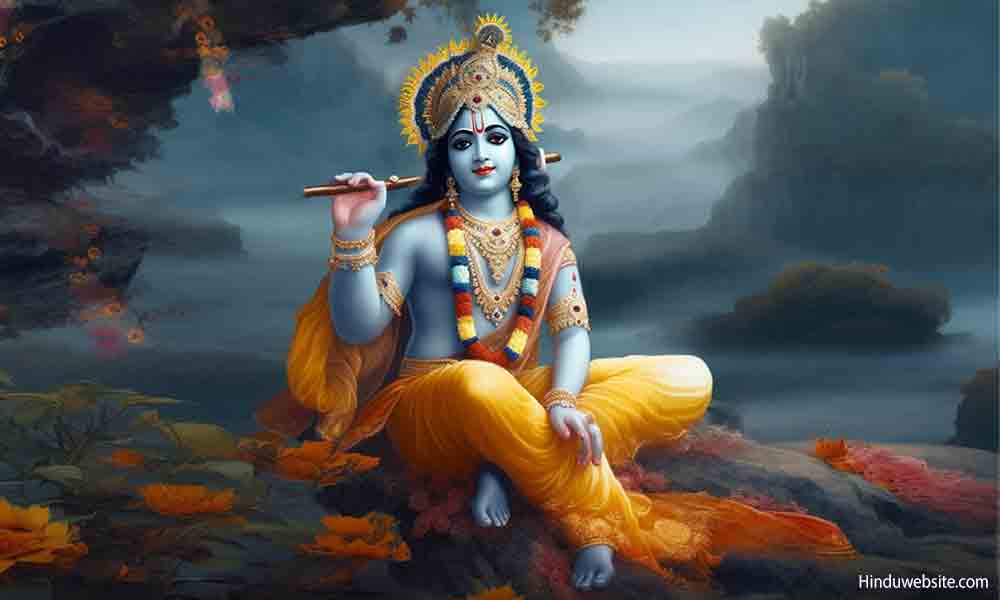
81. What is Nitya Karma, an obligatory duty?

Source: Modified for use under the Pixabay Content License
Notes: I have translated the Bhagavadgita twice. The first one was a loose translation. The second one was a word to word translation with a detailed commentary. The commentary is however different from what you will find here. In this section I will share with you my thoughts about the knowledge, philosophy and wisdom of the Bhagavadgita as I understand it from my perspective. Jayaram V
Summary: This essay defines and explains the meaning of Obligatory duties such as Nitya Karmas or Daily Sacrifices according to the Bhagavadgita and how they are different from other actions.
In the Bhagavadgita, Lord Krishna frequently mentions obligatory duties and urges Arjuna to perform them without fail. He also suggests that all karma yogis should perform them and not neglect them. He also says that those who perform them with desires and who abandon them without performing will incur sinful karma and remain bound to samsara. What is an obligatory duty? y?
The duties that arise from your Dharma are obligatory. This means they are compulsory and should not be avoided. Avoiding them will result in sin. Dharma means duty only, the duty of humans. In the past, when the caste system was right, they depended upon the caste. They may also arise from your essential nature, the profession you choose, or the role you perform as a householder, as a son, brother, parent, spouse, daughter, grandparent, etc. In today’s world, this is more relevant and appropriate. Obligatory duties are supposed to be performed without desires and attachment and without desiring their fruit. It is what is meant by obligatory duty. You have to perform them to uphold your Dharma as a human being, householder, and God’s devotee.
In Sanskrit, obligatory duties are known as Nitya Karmas, meaning actions that should always be performed without fail. According to the Vedas, householders have to perform at least five nitya karmas every day. They must cook food and offer it to gods, ancestors, seers, sages, alms seekers, animals, and other creatures. Some include the study of the scriptures, charity, worshipping gods, and entertaining guests. Parasara identified the following as daily obligatory duties: bathing, three-for-five daily prayers, the study of the Vedas, and making offerings to gods and ancestors with food and water.
While one may not be able to perform these duties strictly as prescribed in the Vedas due to the constraints of modern life, one may, however, follow the idea in principle. If you perform good deeds every day, live responsibly, honor your commitments to your family and others, do your best in your profession or occupation, live as a responsible member of your community, help others, and pray to gods or God, perhaps you are near the ideal of a being dutiful upholder of Dharma. If you perform them as a service or sacrifice to God without desires and expectations to fulfill your role on this planet as a responsible human being and spread peace, happiness, order, and regularity in your surroundings to the extent you can, you will not incur karma.
What about the actions that are not obligatory? Are they part of your Dharma? Any actions that you perform with desires and attachments produce karma. All actions, such as eating, walking, sleeping, speaking, giving charity, helping others, serving God in a temple, etc., are also actions only that produce consequences. Therefore, ideally, they must be performed without desires.
Suggestions for Further Reading
- The Wisdom of the Bhagavadgita, Main Page
- The Wisdom of the Upanishads, Main Page
- What is Brahmacarya in Hinduism?
- Brahmacharya or Celibacy in Hinduism
- The Bhagavadgita, Philosophy and Concepts
- The Many Gods and Goddesses of Hinduism
- Divine Qualities Of A True Worshipper Of God
- The Bhagavadgita on Karma, the Law of Actions
- Maya, The Grand Illusion Or The Delusion Of The Mind
- Aspects, Emanations, Incarnations and Forms of God Vishnu
- Dvaita or Advaita What is the Truth?
- Symbolism in the Bhagavadgita
- The Truth About Karma
- Meaning and Definition of Bhagavan
- Brahman the Supreme Universal Lord of All
- What is Bhakti or Devotion?
- Bhakti Marg, the Path of Devotion
- History and information about Mathura and Vrindavan Temples
- True Devotion and Qualities of a True Devotee
- Essays On Sorrow And Its Spiritual Significance
- Essays On Dharma
- Esoteric Mystic Hinduism
- Introduction to Hinduism
- Hindu Way of Life
- Essays On Karma
- Hindu Rites and Rituals
- The Origin of The Sanskrit Language
- Symbolism in Hinduism
- Essays on The Upanishads
- Concepts of Hinduism
- Essays on Atman
- Hindu Festivals
- Spiritual Practice
- Right Living
- Yoga of Sorrow
- Happiness
- Mental Health
- Concepts of Buddhism
- General Essays